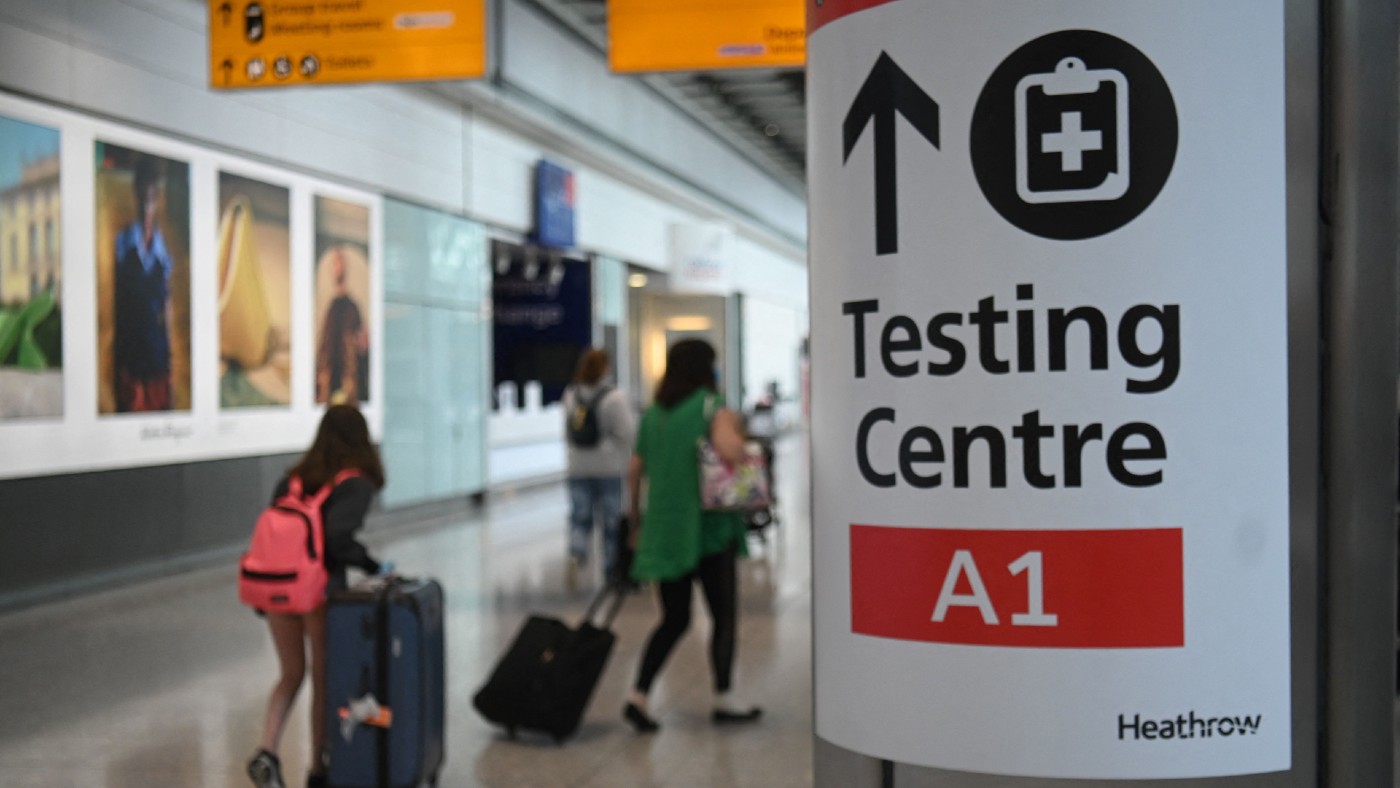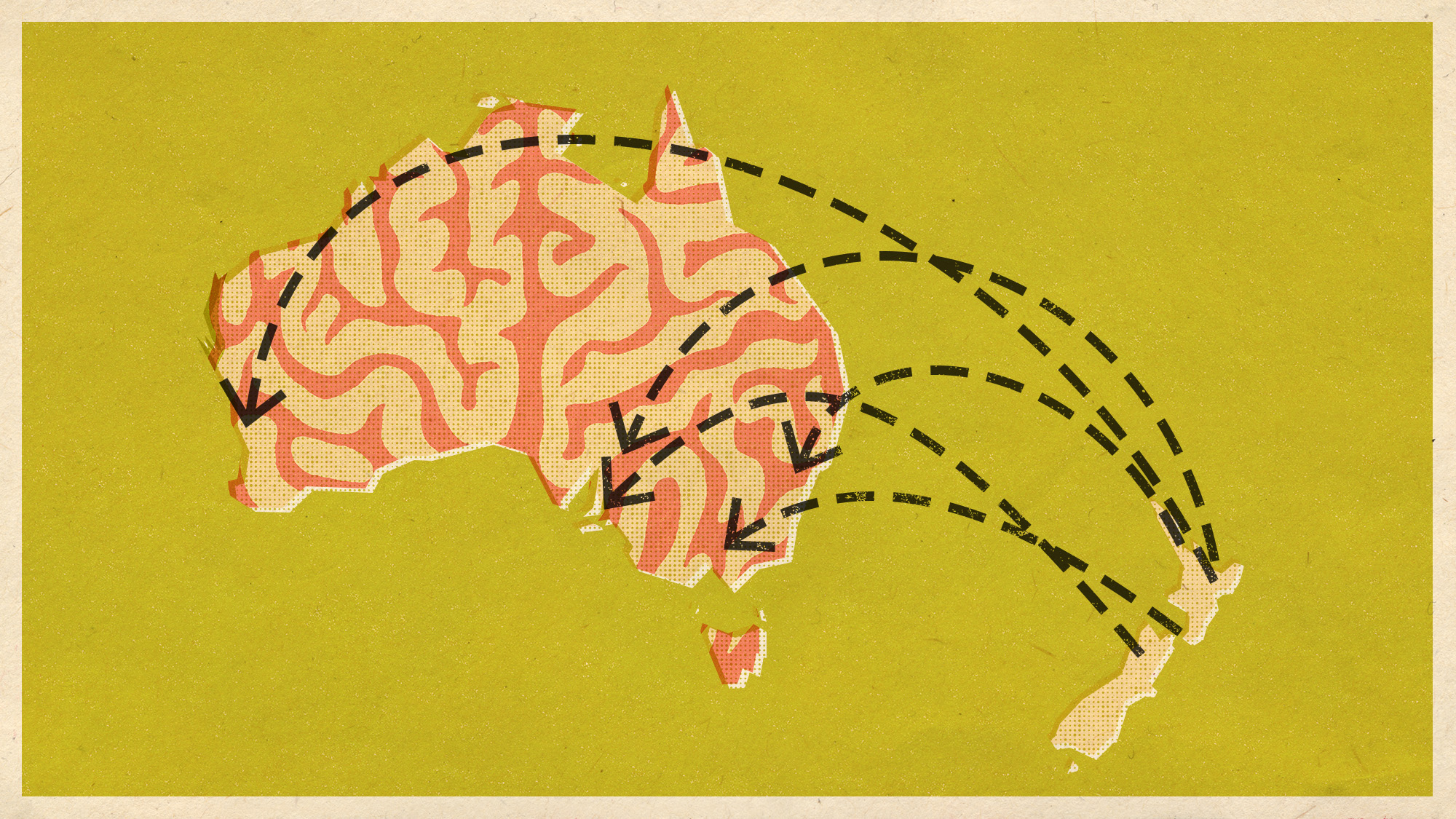Explained: the UK’s new travel rules during Covid-19
PM announces the scrapping of pre-departure tests

A free daily email with the biggest news stories of the day – and the best features from TheWeek.com
You are now subscribed
Your newsletter sign-up was successful
The government’s decision to scrap pre-flight tests has been welcomed by the travel industry – but many experts believe the damage has already been done.
In an announcement at the House of Commons yesterday, Prime Minister Boris Johnson confirmed that from Friday fully-vaccinated arrivals into England will no longer be required to have a negative pre-departure test and will not need to self-isolate until they get a negative PCR test. Then from Sunday, travellers will have to take a lateral flow test before the end of day two after arriving.
Omicron is now so widespread in the UK that “testing has outlived its usefulness”, Transport Secretary Grant Shapps told Sky News. “So we are able to withdraw it from international travel.”
The Week
Escape your echo chamber. Get the facts behind the news, plus analysis from multiple perspectives.

Sign up for The Week's Free Newsletters
From our morning news briefing to a weekly Good News Newsletter, get the best of The Week delivered directly to your inbox.
From our morning news briefing to a weekly Good News Newsletter, get the best of The Week delivered directly to your inbox.
Eluned Morgan, Wales’s minister for health and social services, confirmed that she had “reluctantly agreed” to the plans to follow England’s easing of testing rules, The Independent reported. The Scottish and Northern Irish governments have yet to announce any changes.
What are the new travel testing rules?
Fully-vaccinated arrivals to England after 4am on Friday 7 January will not need to take a Covid-19 test before travel and will also not need to quarantine, the Government website explained.
And from 4am on Sunday 9 January fully-vaccinated travellers can “choose to take a lateral flow test instead of a PCR test” after they arrive in England. The lateral flow tests must be bought from a private test provider – free NHS tests are not allowed.
The rules for unvaccinated passengers have not changed. They will need to “continue to take a pre-departure test, PCR tests on day two and day eight, and self-isolate for ten days”, the BBC reported.
A free daily email with the biggest news stories of the day – and the best features from TheWeek.com
How the travel industry reacted
Speaking on Twitter, travel expert Paul Charles said this is the change in government rules needed for a “bounce back in travel” and that “2022 is now looking very promising for recovery in the sector”.
A “surge in holiday bookings” is expected in the coming weeks, The Independent said. Derek Jones, CEO of Kuoni’s parent company Der Touristik UK, predicts that travel will be “90% back before the end of spring”.
Industry leaders “hailed” the changes, TTG reported. Tim Alderslade, Airlines UK’s chief executive, said the “hugely welcome move” has come at a “critical time” in the booking season and it will provide a “massive boost to those wanting to travel abroad or come to the UK this year”.
The travel and aviation industries claim the pre-departure tests were “unnecessary and hugely damaging to the sector”, The Guardian reported. And travel association Abta has warned that the “damage had already been done”. The Business Travel Association has urged the government to come up with a “robust plan for future variants that does not mean closing our borders and strangling our sector once more”.
-
 Political cartoons for February 21
Political cartoons for February 21Cartoons Saturday’s political cartoons include consequences, secrets, and more
-
 Crisis in Cuba: a ‘golden opportunity’ for Washington?
Crisis in Cuba: a ‘golden opportunity’ for Washington?Talking Point The Trump administration is applying the pressure, and with Latin America swinging to the right, Havana is becoming more ‘politically isolated’
-
 5 thoroughly redacted cartoons about Pam Bondi protecting predators
5 thoroughly redacted cartoons about Pam Bondi protecting predatorsCartoons Artists take on the real victim, types of protection, and more
-
 What's Jeff Bezos' net worth?
What's Jeff Bezos' net worth?In Depth The Amazon tycoon and third richest person in the world made his fortune pioneering online retail
-
 'Brain drain' fear as record numbers leave New Zealand
'Brain drain' fear as record numbers leave New ZealandUnder The Radar Neighbouring Australia is luring young workers with prospect of better jobs
-
 Ghost kitchens are pulling a disappearing act
Ghost kitchens are pulling a disappearing actunder the radar The delivery-only trend is failing to live up to the hype built up during the pandemic
-
 The birth of the weekend: how workers won two days off
The birth of the weekend: how workers won two days offThe Explainer Since the 1960s, there has been talk of a four-day-week, and post-pandemic work patterns have strengthened those calls
-
 Why household wealth took off during the pandemic
Why household wealth took off during the pandemicUnder The Radar The Covid-19 pandemic caused a lot of pain and hardship, but new research shows it also left most Americans wealthier
-
 Empty office buildings are blank slates to improve cities
Empty office buildings are blank slates to improve citiesSpeed Read The pandemic kept people home and now city buildings are vacant
-
 Inflation vs. deflation: which is worse for national economies?
Inflation vs. deflation: which is worse for national economies?Today's Big Question Lower prices may be good news for households but prolonged deflation is ‘terrible for the economy’
-
 America's 'cataclysmic' drop in college enrollment
America's 'cataclysmic' drop in college enrollmentToday's Big Question "The slide in the college-going rate since 2018 is the steepest on record"